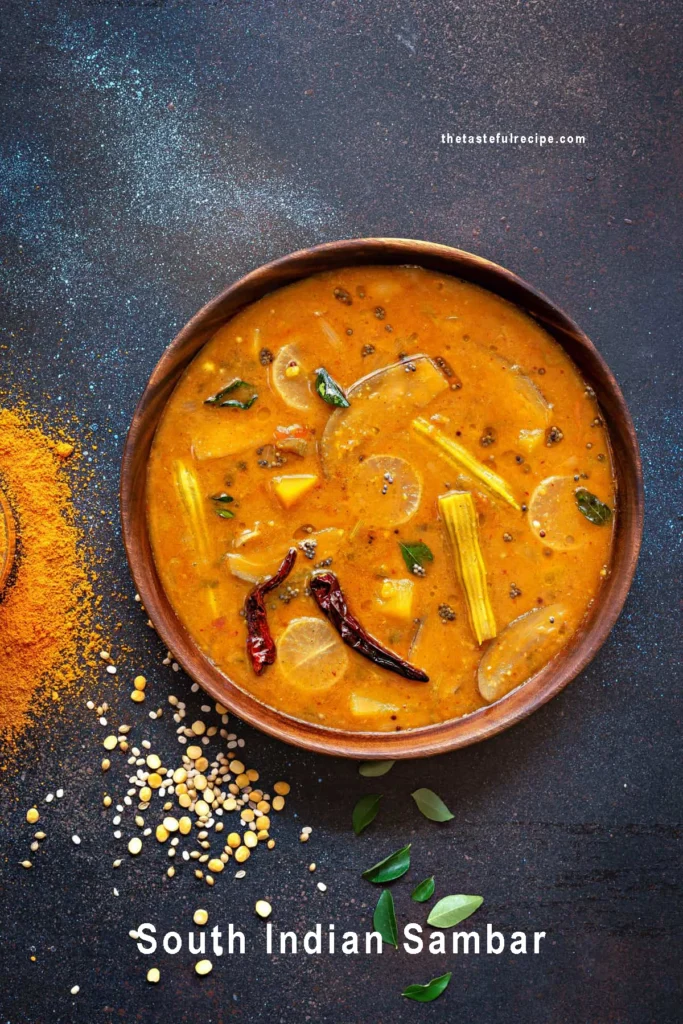Sambar Recipe is the South Indian cuisine that is like a big tapestry with Sambar being the most representative of this rich tapestry of flavor and culture. No wonder, it’s more than a dish; it’s an icon that represents an entire culture. Let us now take a trip through the steps involved in cooking sambar, which has become so popular.
Exploring the Essence of Sambar
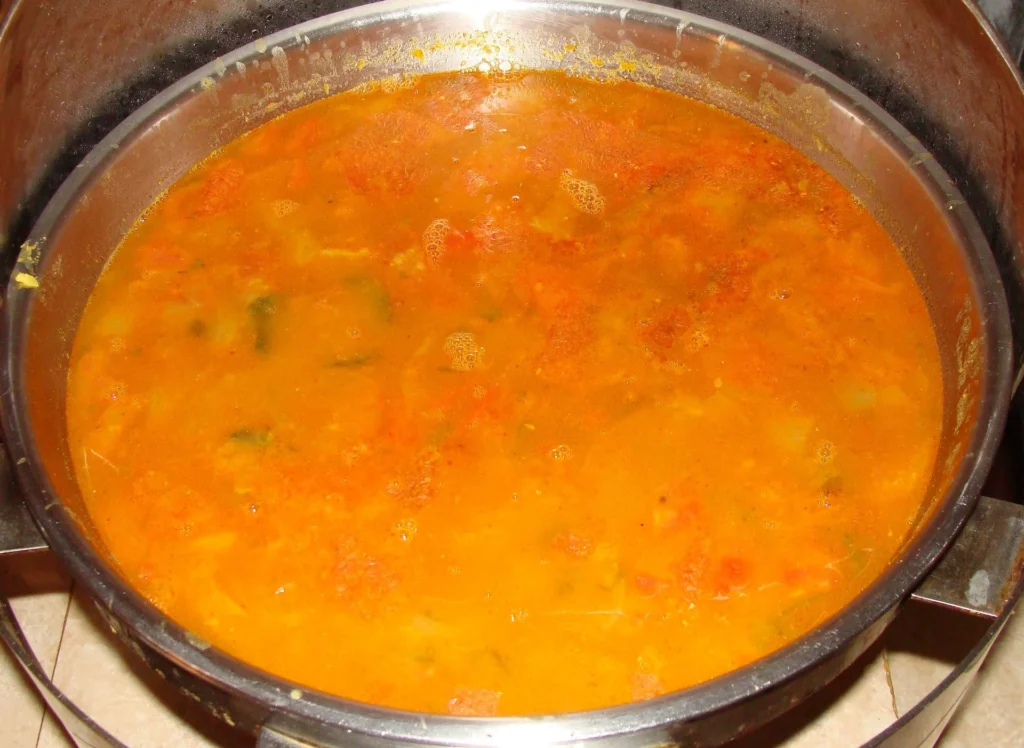
Sambar recipe exemplifies everything about South Indian cuisine: lentils, vegetables, and spices all fused harmoniously. Some claim that its origin dates back many centuries when it was created out of humble beginnings before becoming an integral component across the region. Sambar is adored by millions of people and remains their favorite food when served along with steamed rice, idli, dosa, or vada.
Sambar Recipe Ingredients’ Reveal
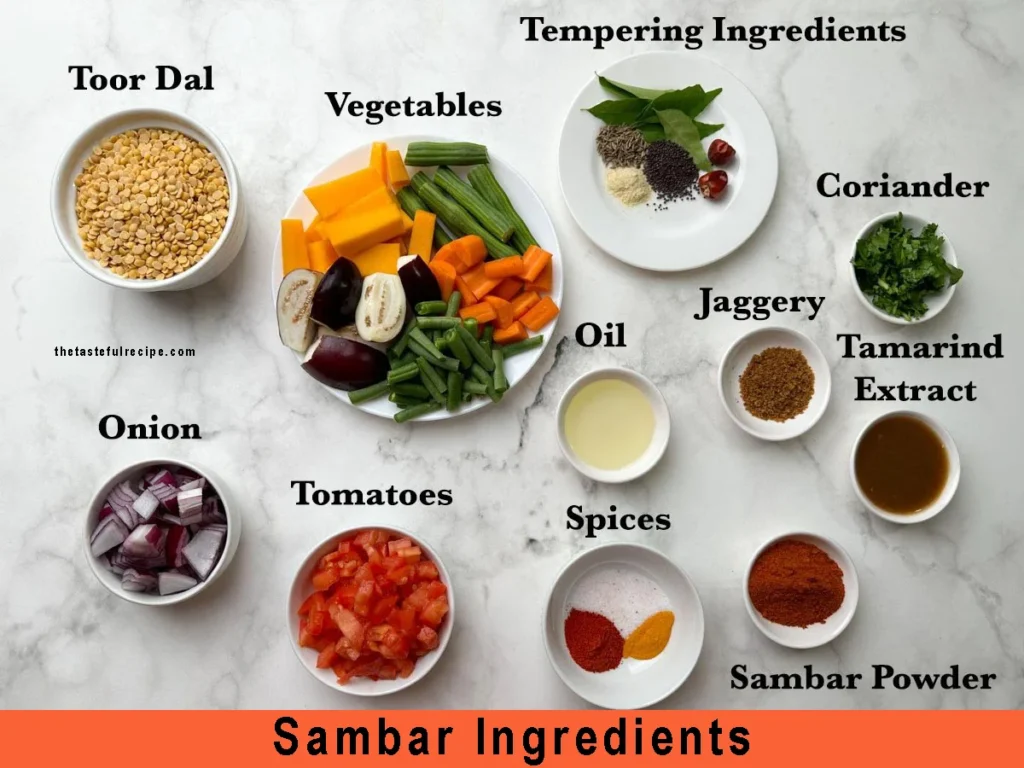
Every sambar – whether it’s spicy, sweet, or rich – contains a collection of carefully selected elements. To start with, split yellow pigeon peas (toor dal) are the main ingredient that gives this dish its characteristic thickness. This is complemented by various types of vegetables such as onions, tomatoes, carrots, potatoes, string beans, and brinjal; all these lend food value to the stew. Tamarind sourness is added; in addition to sambar powder blend of spices and condiments such as turmeric powder, mustard seeds, cumin seeds, and dried red chilies gives the dish an appealing warmth and complexity.
Crafting the Culinary Symphony
Sambar preparation is not brainwork but a passionate process for those who know it well for they are always careful about it. Firstly, the yellow lentils are boiled until they turn soft through boiling in pressure cookers. Yet still cooking goes on while we dissolve tamarind into hot water to get off its tanginess from it which will form the basis of our soup.
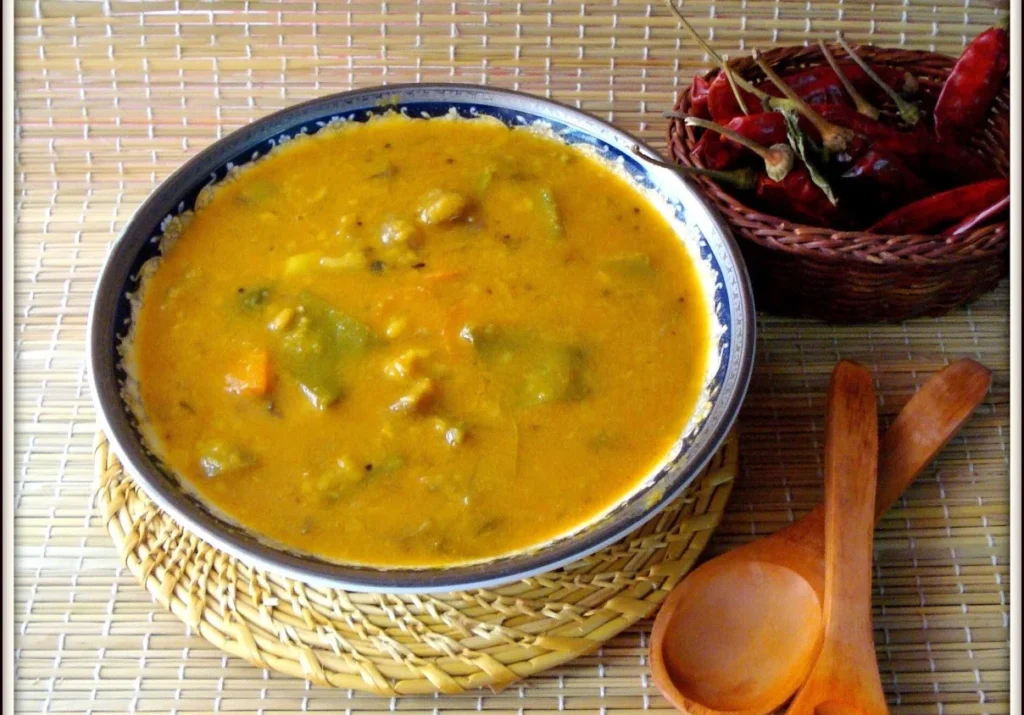
We move on to the spices orchestra. As heated pan gets them, they crackle and pop to release their nutty scent. Cumin seeds, dried red chilies, and asafetida are part of this chorus, which creates a heady fragrance in the kitchen. Onions and tomatoes sizzle, forming the flavorful foundation upon which the vegetables will dance.
We also added sambar powder right after that to suitably tenderize our vegetables – it was supposed to be the star of the show. This aromatic blend has many symphonies like coriander, cumin, fenugreek seeds, and kadipatha (curry leaves); hence it stands out among others. And while we stir it continuously; its color deepens together with its smell indicating a sensory feast is near.
Harmonizing Flavors
When everything seems perfect and every detail is in place for our sambar to come alive on stage, tamarind extract joins in adding sourness to this stew. With flavors blending in the kitchen accompanied by expectation, every spoonful promises blissful eating moments.
Serving Up Tradition
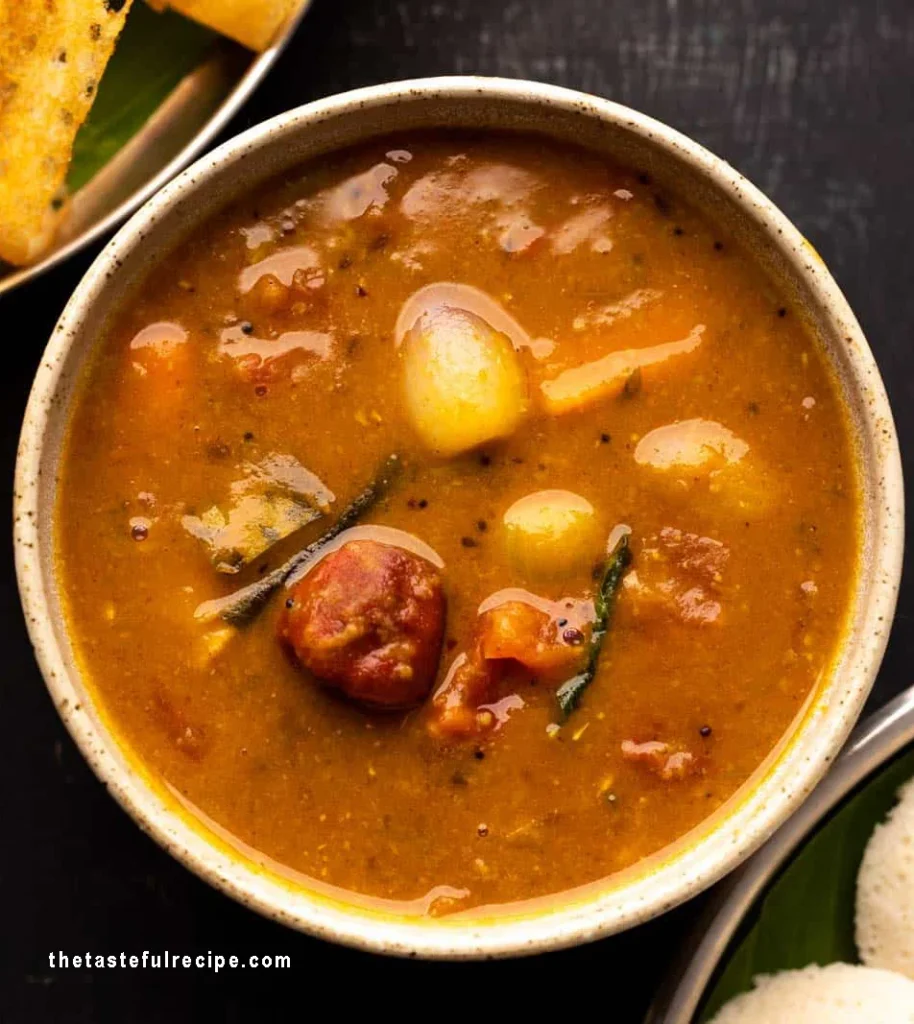
Finally, the time comes to share the fruits of our labor. Served generously on a bed of fried rice or alongside fresh idli dosa vada, sambar beckons with irresistible aromas and vibrant colors Garnished with fresh coriander leaves, every serving is a celebration of the traditions, flavors, and timeless craftsmanship of South Indian cooking.
Try More Recipe:- Quick and Tasty Coconut Chutney Recipe: Perfect for Any Meal
Quick and Easy Sambar Recipe: Taste the Essence of South India
Description
Sambar Recipe is a traditional South Indian lentil-based stew packed with vegetables and aromatic spices. This flavorful dish is commonly served with rice, idli, dosa, or vada, making it a staple in many households and restaurants across India.
Ingredients
Instructions
-
Step 1: Cooking the Lentils
- Rinse 1 cup of toor dal under running water until the water runs clear.
- In a pressure cooker, add the rinsed dal along with 2 cups of water, a pinch of turmeric powder, and a teaspoon of vegetable oil.
- Pressure cook the dal for about 3-4 whistles or until it becomes soft and mushy. Alternatively, you can cook it in a regular pot until tender.
-
Step 2: Preparing Tamarind Extract
- Soak a small lemon-sized ball of tamarind in 1/2 cup of warm water for about 15 minutes.
- Squeeze the soaked tamarind to extract its pulp, then strain it to remove any seeds or fibers. Set aside the tamarind extract.
-
Step 3: Cooking the Vegetables
- Heat 2 tablespoons of vegetable oil in a large pan or kadhai over medium heat.
- Add mustard seeds and let them splutter, then add cumin seeds, dried red chilies, and a pinch of asafoetida.
- Add chopped onions and sauté until they turn translucent.
- Add chopped tomatoes and cook until they become soft and mushy.
- Now, add all the chopped vegetables and stir well.
- Add sambar powder, turmeric powder, salt to taste, and curry leaves. Mix everything well.
-
Step 4: Making Sambar
- Pour the tamarind extract into the pan with vegetables.
- Mix well and let it simmer for 10-15 minutes until the vegetables are cooked through.
- Once the vegetables are cooked, add the cooked dal to the pan and mix everything together.
- Adjust the consistency of the sambar by adding water if it's too thick.
- Let the sambar simmer for another 5-10 minutes to allow the flavors to meld together.
- Garnish with fresh coriander leaves.
-
Step 5: Serving
- Serve hot sambar with steamed rice, idli, dosa, or vada.
- Enjoy the delicious and comforting flavors of this South Indian classic!
Servings 5
- Amount Per Serving
- Calories 240kcal
- % Daily Value *
- Total Fat 8g13%
- Saturated Fat 1g5%
- Sodium 59mg3%
- Potassium 695mg20%
- Total Carbohydrate 37g13%
- Dietary Fiber 12g48%
- Sugars 8g
- Protein 10g20%
- Vitamin A 4123 IU
- Vitamin C 108.2 mg
- Calcium 79 mg
- Iron 4 mg
* Percent Daily Values are based on a 2,000 calorie diet. Your daily value may be higher or lower depending on your calorie needs.
Note
- You can adjust the quantity of vegetables according to your preference.
- Sambar Recipe powder is readily available in Indian grocery stores, but you can also make it at home by grinding together coriander seeds, cumin seeds, fenugreek seeds, red chilies, curry leaves, and turmeric powder.

